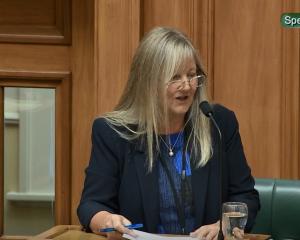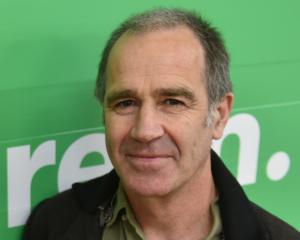Dame Tariana, who pushed for the policy of raising cigarette taxes by 10 per cent a year when the Government agreed to it in 2010, said she still believed the policy was the best way to save the lives of 5000 people a year who die because of cigarette smoking.
"I only have to go to the cemetery by my marae to know of the deep impact that's had on our families," she said.
Massey University public health researcher Associate Professor Marewa Glover, who supported the tax increases as recently as last year, said today she had changed her mind because NZ Health Surveys had found no statistically significant reduction in Maori and Pacific daily smoking rates since 2006-07.
"It is now illegal to discriminate against people on the grounds of ethnicity, age, mental illness or sexuality, but there is this handy tool now which is smoking, which [is] concentrated with higher prevalence amongst the 'undesirables'," she said.
"So people are now, I believe, using smoking as a legitimate and legal way to ... discriminate against people."
The 2014-15 NZ Health Survey found the numbers of Maori women smoking daily fell only slightly over the past nine years, from 41.8 per cent in 2006-07 to 40 per cent - a reduction that was not statistically significant.
The rate for Pacific women actually increased, from 19.7 per cent to 20.6 per cent.
Europeans and Asians now have much lower smoking rates, so Dr Glover said the impact of the tax now fell most harshly on Maori and Pacific people.
But Dame Tariana said the policy of raising taxes was intended to save lives.
"This is not about being racist, because it was me who brought it in. There is absolutely no way that race comes into the argument," she said.
"This particular initiative was about stopping the uptake of cigarettes by young people, and that has worked. So unless she [Dr Glover] can prove it to me, not by doing academic studies but by getting out and talking to our communities, then I'm highly unlikely to support her argument."
The director of Otago University's Health Inequalities Research Programme, Professor Tony Blakely, also rejected Dr Glover's claims. He said other data from the Census and youth health surveys showed dramatic reductions in smoking among Maori and Pacific people.
The 2013 Census found that "regular" smoking plunged from 45.5 per cent in 2006 to 34.7 per cent for Maori women, from 38.5 per cent to 30.5 per cent for Maori men, from 27.3 per cent to 20.5 per cent for Pacific women, and from 33.5 per cent to 26.2 per cent for Pacific men.
Youth health surveys by Auckland University have found that young Maori smoking cigarettes at least weekly have dropped by two-thirds, from 24.8 per cent of Maori secondary school students in 2001 to 16.5 per cent in 2007 and just 8.3 per cent in 2012.
Professor Blakely said every 1 per cent increase in the price of cigarettes reduced consumption by 0.4 per cent, and Maori were likely to cut back more than the average because of their lower average incomes.
He said further tax increases were still desirable.
"If that the best thing to do? I think it's the obvious next thing to do," he said.
He said other measures would also be required to meet an official target of reducing smoking to 5 per cent of all adults by 2025. He suggested gradually lifting the legal purchasing age for cigarettes from 18 to create a "smokefree generation".
"I just think it's unethical to allow a new cohort of people to buy tobacco when we have a smokefree goal," he said.
- By Simon Collins of the New Zealand Herald












